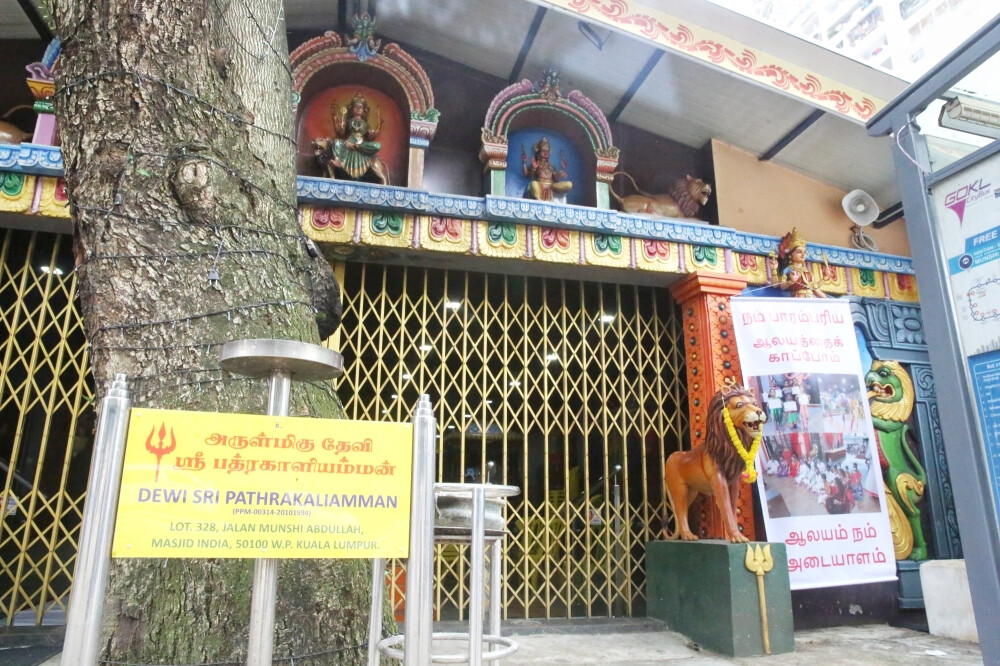
Kuala Lumpur, Malaysia - The relocation of a Hindu temple to make way for a mosque in the heart of Kuala Lumpur has ignited further controversy with the arrest of a vocal Muslim preacher. This development occurred just hours after Prime Minister Anwar Ibrahim declared a "victory" for common sense in resolving the long-standing land dispute surrounding the Dewi Sri Pathrakaliamman temple.
The temple, which has stood for generations on land acquired by Malaysian textile giant Jakel in 2014, agreed on Tuesday to relocate to a new site a mere 50 meters away. This agreement brought an end to 11 years of stalled negotiations, paving the way for Prime Minister Anwar to lay the foundation stone for a new mosque, named Masjid Madani, in a widely publicized ceremony on Thursday.
During the ceremony, Anwar stated that the resolution demonstrated the Muslim community's ability to act with "wisdom and strength of Islam," emphasizing fairness and compassion over arrogance and spitefulness. "It is a victory when we can set a good example by displaying compassion, fairness and not hatred and being spiteful," he asserted.
However, Anwar's remarks have been met with skepticism and criticism, with many questioning his choice of language and the timing of his pronouncements, particularly amidst accusations that politicians are exacerbating the very divisions they claim to want to heal. Human rights lawyer Latheefa Koya, in a post on social media platform X, questioned the Prime Minister's celebratory tone, asking, "Victory? Over whom?"
Tensions have continued to brew online, fueled by discontent among some Muslim preachers who are unhappy that the temple, originally built during the British colonial era without formal land titles, was granted new, prime land for relocation in the Malaysian capital.
The situation took a dramatic turn on Thursday evening when Inspector General of Police Razarudin Husain announced the arrest of 41-year-old preacher Zamri Vinoth in the northern state of Perlis. The arrest followed public complaints regarding comments he posted on social media after the temple relocation agreement.
"The complainant noticed comments made on social media regarding the outcome of negotiations on the temple's relocation," Razarudin stated. "The complainant has requested the police to investigate the preacher over remarks that reportedly contained seditious elements and defamed the Hindu religion."
Zamri Vinoth, a Muslim convert, has been a prominent critic of the Dewi Sri Pathrakaliamman temple and other Hindu temples built on land with unclear ownership – a prevalent issue in Malaysia stemming from the lack of formal regularization of British colonial land rights after the country's independence in 1957.
His social media posts reportedly accused Hindus of being "uncivilised" and "greedy" for constructing temples on land they did not own, further accusing them of "playing victim" when asked to vacate.
Other influential Muslim preachers, including Firdaus Wong Wai Hung, have also voiced criticism of the relocation terms, questioning the decision to grant the temple a new site, which he described as rewarding "theft."
A 2023 legislative debate in Selangor, the state encompassing Kuala Lumpur with the largest Malaysian Indian population, revealed that a staggering 773 temples were operating without formal approval or with unclear land ownership.
The Malaysian Hindu Sangam (MHS), representing the country's approximately 2 million Hindus, has proposed the establishment of a special body to address the widespread land issues affecting temples nationwide. The MHS argues that many temples were built with the permission of British colonial authorities, but these land rights were never formally recognized after Malaysia gained independence.
"Temples that have been in a certain location for tens or hundreds of years are suddenly categorised as 'illegal' due to changes in land ownership and development policies," the MHS stated on Monday, highlighting the precarious situation faced by many Hindu places of worship in the country.
The arrest of the Muslim preacher underscores the delicate religious and political landscape in Malaysia, where issues of faith and belonging are increasingly sensitive. While the Prime Minister sought to portray the temple relocation as a victory for mutual understanding, the ongoing controversy and the preacher's arrest suggest that the underlying tensions remain significant and require careful navigation to foster genuine harmony.
[Copyright (c) Global Economic Times. All Rights Reserved.]




























